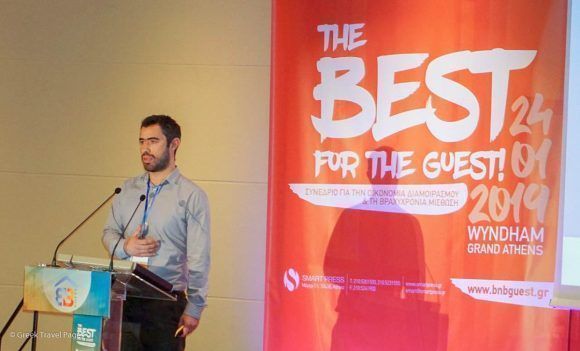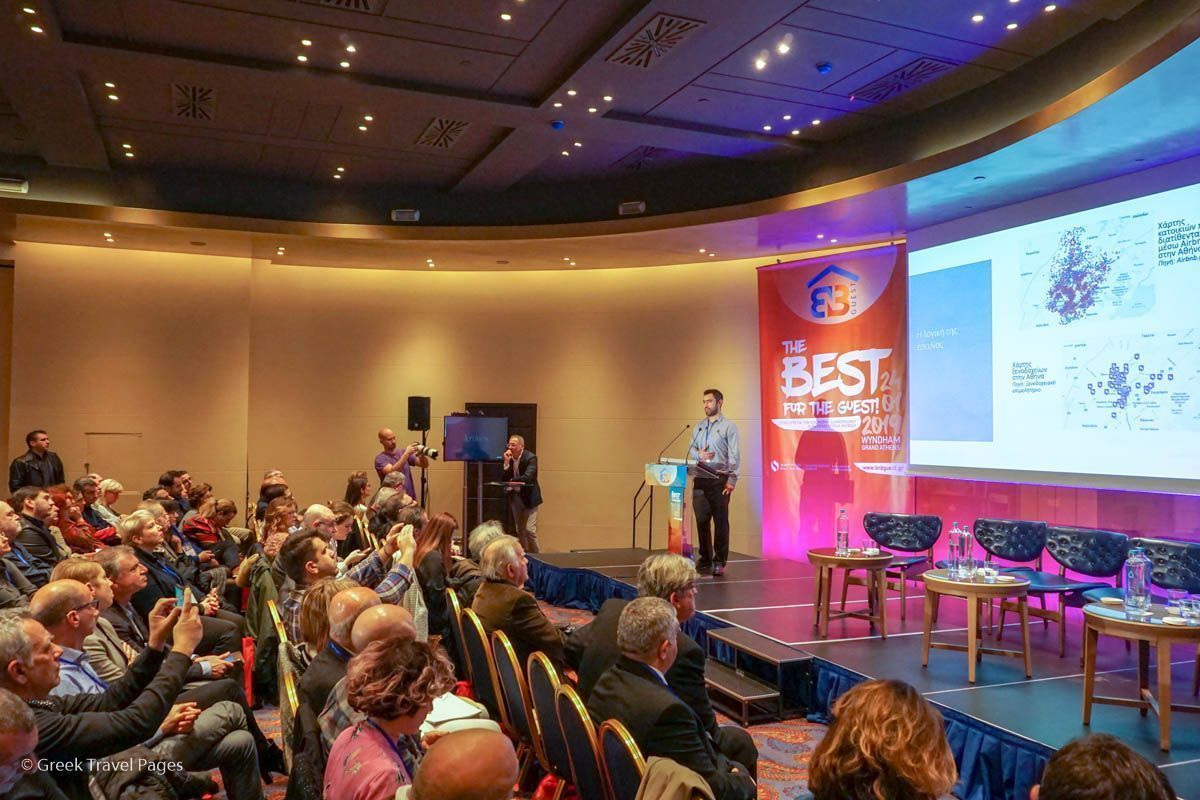Greeks Turned to Airbnb for Extra Income, Study Finds
The economic crisis, which took a bite out of Greeks’ wages or even left them unemployed, combined with inherited property and the need to boost income has led an ever-growing number to turn to short-term rentals, a study presented last month at the 1st BnB Guest Conference in Athens, revealed.
 According to an online survey carried out by the University of the Aegean and the Laboratory for Tourism Research and Studies, 23 percent said they rent their properties for over 150 days a year, with 63 percent citing the need for added income and 44 percent as a way out of the economic crisis.
According to an online survey carried out by the University of the Aegean and the Laboratory for Tourism Research and Studies, 23 percent said they rent their properties for over 150 days a year, with 63 percent citing the need for added income and 44 percent as a way out of the economic crisis.
The findings further indicate that the majority got into Airbnb practices in the last two years (37 percent) while 6 percent said they have been active for more than five years.
Study data further reveals that 41 percent of those polled are active in Athens, 20 percent on Crete, 16 percent in Central Macedonia, 14 percent on the South Aegean islands, and 12 percent on the Ionian islands.
At the same time, nearly half of the poll participants (46 percent) said they agreed with the new legal framework and that it was necessary in order to regulate sharing economy practices, but conceded that it will limit activity, which in turn will have an negative impact on the overall economy.
Indicatively, 41 percent said home-sharing contributes to the national economy, 40 percent that it indirectly supports other economic sectors (f&b businesses, retail) and 39 percent the local economy.

Dr. Sofoklis Skoultsos, Professor of Tourism Management, University of the Aegean, presented the data during the 1st BnB Guest Conference in Athens. Photo: GTP
At the same time, 80 percent of those surveyed said they had gone ahead and registered with Greece’s newly launched online registry and declared taxable earnings.
Interestingly, 43 percent said they did not agree that short-term home rentals led to tax losses for the state, compared to 29 percent who said it did, while 1 in 2 said it did reduce the demand for hotels and other tourist accommodation in the country and created unfair competition.
In terms of management, 70 percent said they run the activity on their own despite the emergence of companies offering management services as of late.
In terms of income, regions with the largest increase in revenue per available apartment (RevPar) are Lefkada, Ermionida in the Peloponnese, Corfu, Glyfada and Tinos. Destinations with the highest demand are Crete, Athens, Corfu, Santorini, Mykonos and Thessaloniki.
According to data presented by Tom Caton, chief revenue officer at AirDNA, available listings on home-sharing platforms grew by 21 percent to 72,144 during off season December 2018, against 59,379 listings in the same month a year earlier.
 Meanwhile, aiming to take advantage of the low property rates in Greece, and particularly in Athens, and driven by the country’s golden visa program, the recovering economy and robust tourism flows, foreign investors have been buying with plans to transform their buys into offices, boutique hotels and Airbnb-style units.
Meanwhile, aiming to take advantage of the low property rates in Greece, and particularly in Athens, and driven by the country’s golden visa program, the recovering economy and robust tourism flows, foreign investors have been buying with plans to transform their buys into offices, boutique hotels and Airbnb-style units.
Interest is peaking for inner-city center areas and older (more than 30 years) buildings in Kypseli, Patissia, Exarchia and Ambelokipi. Indicatively, an old 1,000m2 apartment building in Kypseli can go for as little as 800,000 to 1 million euros.
The 1st BnB Guest Conference conference was organized by Smart Press and attracted over 1,000 property market and sharing economy professionals.
GTP Headlines was a media partner to the BnB Guest Conference.






